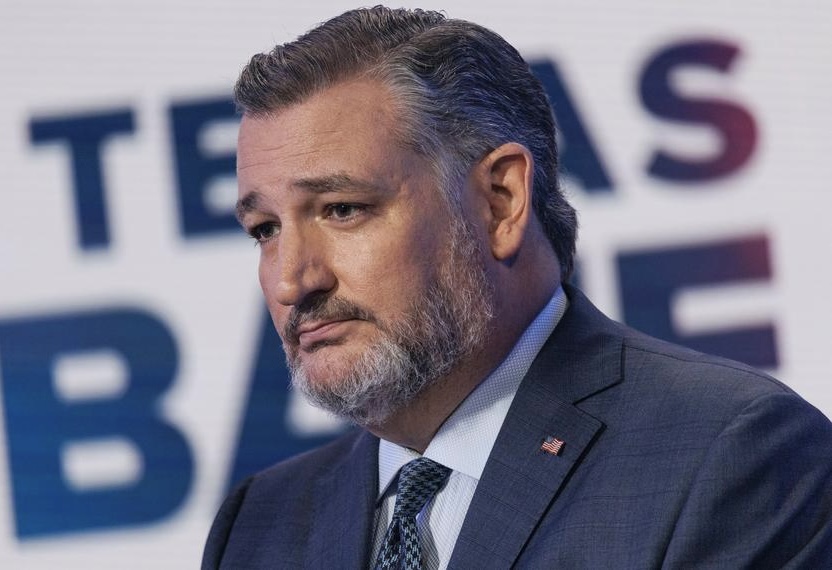Ted Cruz Delivers Fierce Senate Critique of Pelosi’s National Guard Decision – A Showdown Moment
In a dramatic Senate hearing that quickly gained widespread attention, Senator Ted Cruz (R-Texas) launched a pointed interrogation of former Speaker of the House Nancy Pelosi’s role in the National Guard’s delayed response to the events of January 6, 2021. The exchange, which occurred during the confirmation hearings for FBI Director Kash Patel, has fueled ongoing discussions about Capitol security and the decision-making processes that led to the Capitol riot.
The Testimony Unfolds
During the Senate hearing, Cruz questioned Patel, who was serving as the chief of staff to acting Secretary of Defense Christopher C. Miller at the time, about the deployment of the National Guard in the days leading up to the January 6 attack. Patel revealed that his team had been preparing for the possibility of deploying up to 20,000 National Guard troops. These preparations were made days before the event, but the deployment was contingent on a formal request from authorities, including the Capitol Police.
Cruz pressed Patel about how often the Department of Defense had offered assistance to the Capitol Police leading up to the riot. Patel confirmed that such offers had been made several times, but each offer was rejected. “The House Sergeant at Arms, who reports directly to the Speaker of the House, rejected our proposal to deploy troops,” Patel explained. Cruz, who had been carefully following the chain of command, asked pointedly, “And who did the Sergeant at Arms report to?” When Patel confirmed that the Sergeant at Arms answered directly to Nancy Pelosi, Cruz zeroed in on the former Speaker’s role in the decision-making process.
The questioning became even more intense when Cruz turned to Washington, D.C. Mayor Muriel Bowser’s involvement. Patel confirmed that Bowser had formally declined the offer of National Guard assistance. “To put it simply, she said no,” Patel remarked. This exchange added further weight to Cruz’s contention that critical opportunities to secure the Capitol were missed.
The Tension Escalates
Cruz’s questioning reached its peak when he emphasized Pelosi’s pivotal role in the decision not to deploy National Guard troops. His line of inquiry centered on the idea that Pelosi’s refusal left the Capitol vulnerable to the violent mob that would later storm the building. This argument was not new. In fact, it echoed similar criticisms from former U.S. Capitol Police Chief Steven Sund, who, in a 2023 testimony, revealed that just days before January 6, a request to deploy National Guard troops had been dismissed by the House Sergeant at Arms, who reportedly said Pelosi would never approve it.
Cruz’s interrogation of Patel seemed to strengthen this narrative, with many seeing it as a turning point in public discussions about security failures on that fateful day. The issue of troop deployment and the chain of command on January 6 has since become a focal point for those seeking accountability, particularly regarding Pelosi’s handling of security matters.
Implications for Capitol Security
The broader implications of Patel’s testimony and Cruz’s interrogation have reignited a fierce debate over who bears responsibility for the Capitol’s lack of preparation on January 6. Cruz’s relentless questioning has cast a spotlight on Pelosi, with critics arguing that her decision to withhold approval for National Guard support was a significant failure in ensuring the safety of the Capitol and its lawmakers.
Supporters of Pelosi, however, argue that the decision was based on the guidance provided by local authorities and Capitol security protocols. They contend that the decision-making process involved multiple layers of local governance, including the House Sergeant at Arms and the mayor of Washington, D.C. These officials, they argue, were better positioned to assess the threat level and determine the appropriate response.
Nevertheless, Cruz’s pointed questions have struck a chord with those who feel that a more proactive response could have averted the chaos that unfolded that day. The exchange has added fuel to the argument that political considerations may have influenced critical security decisions in a moment of national crisis.
A Defining Moment in Political Discourse
The viral nature of Cruz’s questioning has made the moment a defining example of partisan political sparring. It has also underscored the deep divisions that continue to shape American political discourse. On one side, Cruz’s supporters view his efforts as an important demand for accountability, while on the other, Pelosi’s defenders believe her actions were reasonable given the information available at the time.
The long-term impact of this exchange remains to be seen, but it is clear that the fallout from January 6 continues to influence the political landscape. The debate over security, leadership, and accountability remains alive and well, with key figures like Pelosi and Cruz playing central roles in how the story is being told.
Moving forward, the lessons learned from January 6 and the ongoing investigations into the security failures of that day are likely to have lasting effects on future policies surrounding national security and crisis management. Cruz’s questioning of Patel, and the larger conversation surrounding the Capitol attack, will likely remain a point of reference for those seeking to understand how such a devastating event could have been prevented. The political divide over the events of January 6, and the decisions made in the days leading up to it, is far from over.
